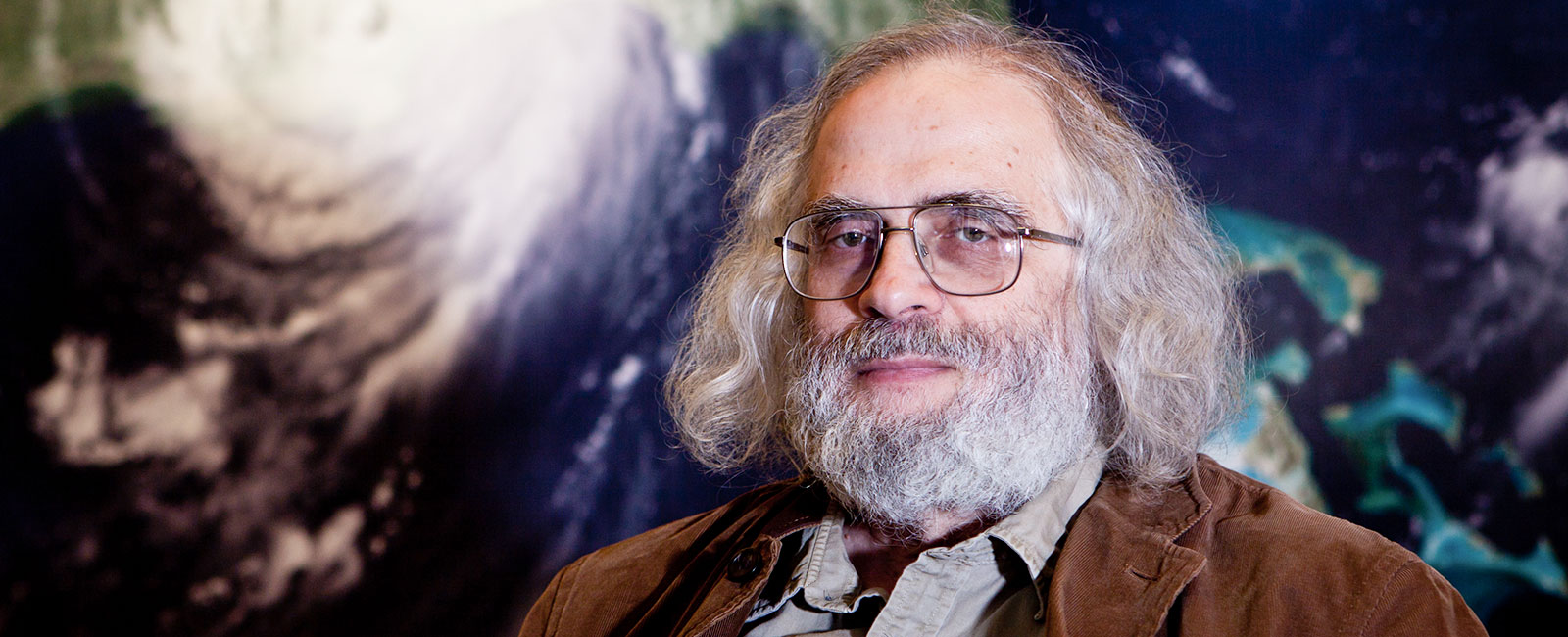Isaac Held wins the BBVA Foundation Frontiers of Knowledge Award for his fundamental contribution to understanding the structure of atmospheric circulation systems and the role of water vapor in climate change
The BBVA Foundation Frontiers of Knowledge Award in the category of Climate Change goes in this fourth edition to Isaac Held, an American physicist of German origin employed at the Geophysical Fluid Dynamic Laboratory of the U.S. National Oceanic and Atmospheric Administration (NOAA), “for his fundamental and pioneering contributions to our understanding of the structure of atmospheric circulation systems and the role of water vapor – the most important greenhouse gas – in climate change,” in the word’s of the jury’s citation.
11 January, 2012
The jury chair, Dr. Bjorn Stevens, points out that while climate change research has tended to center on rising temperatures, Isaac Held (Ulm, Germany, 1948) has opened up new avenues of interest that focus on the essential role of water, both by studying its movement in the atmosphere and by investigating how water vapor influences the greenhouse effect.
Held’s research has helped to uncover many of the processes that dictate the existence of different climate zones, and to predict how they will change due to the alteration of the world’s climate. In particular, his work explains why topical zones will become more humid as subtropical zones get gradually drier, a trend already borne out by the available data.
“The amount of water in the atmosphere is what makes some zones wetter than others. Trying to understand how water moves in the atmosphere and how climate change may alter those patterns in the future is one of the things I have focused on in my research,” remarked Held after hearing of the award.
As temperature rises, so too will the quantity of water vapor in the atmosphere, and this gas, in turn, will drive further warming. The result is a positive feedback that will have to be factored into estimates of future climate.
Held’s research holds out a particular warning for the Mediterranean. According to his forecasts, if CO2 emissions are not curtailed, temperatures in the region could increase by 3º in the course of a century. This would mean a major reduction in rainfall levels: “”We expect precipitation to decrease maybe 5% to 10% for every degree of warming,” Held affirms.
Biography of Isaac Held
Isaac Held was born in a refugee camp. At the age of four he emigrated to the United States with his brother, his mother – a survivor of Auschwitz – and his father, who died in 1956.
As a student his first choice was theoretical physics, but these were the times of the anti-Vietnam war protests, when as Held puts it, “it wasn’t that easy to concentrate on one’s studies”. His watershed moment came in 1972 on reading Man’s Impact on the Climate, one of the first scientific assessments of the effects of rising greenhouse gases in the Earth’s atmosphere. By the time he had finished Held was clear that “this was a challenging problem, and understanding it really had importance to society.”
After graduating from the State University of New York at Stony Brook, he moved on to Princeton where he obtained his PhD in atmospheric and oceanic sciences in 1976. Two years later, he joined the NOAA Geophysical Fluid Dynamic Laboratory, where he remains to this day, combining his research work with the teaching of classes at Princeton University.
One of his first achievements, in the 1980s, was to explain the functioning of the so-called Hadley cells, the atmospheric phenomenon regulating climate in the planet’s topical and subtropical belts. Held then went on to investigate how climate change-induced alterations of air circulation in these regions affect the formation of storms and hurricanes.
Throughout his career, Held has been esteemed for his work on testing the reliability of climate change prediction models. His accomplishments “have been pivotal in understanding tropical circulations and climate patterns and in assessing the robustness and limitations of complex models used to predict climate change,” reads the award certificate.
In over three decades of research, he had published 130 widely cited papers on atmospheric dynamics and climate change. As well as contributing substantially to the Fourth Assessment Report of the IPCC (Intergovernmental Panel on Climate Change), he has served on the World Meteorological Organization Expert Team on “Hurricanes and Climate”.
International jury
The jury in this category was chaired by Bjorn Stevens, Director of the Max Planck Institute for Meteorology (Germany), with Miquel Canals, Professor of Marine Geology in the Geology School at the University of Barcelona acting as secretary. Remaining members were Sergio Alonso, Professor of Meteorology in the Physics Department of the University of the Balearic Islands; Sandrine Bony-Lena, senior scientist in the Laboratoire de Meteorologie Dynamique of the Centre National de la Recherche Scientifique (CNRS) and Pierre et Marie Curie University (France); Kirsten Halsnæs, Head of Climate Programme at the Technical University of Denmark (DTU); and Edward Rubin, Professor of Engineering and Public Policy at Carnegie Mellon University (United States).


